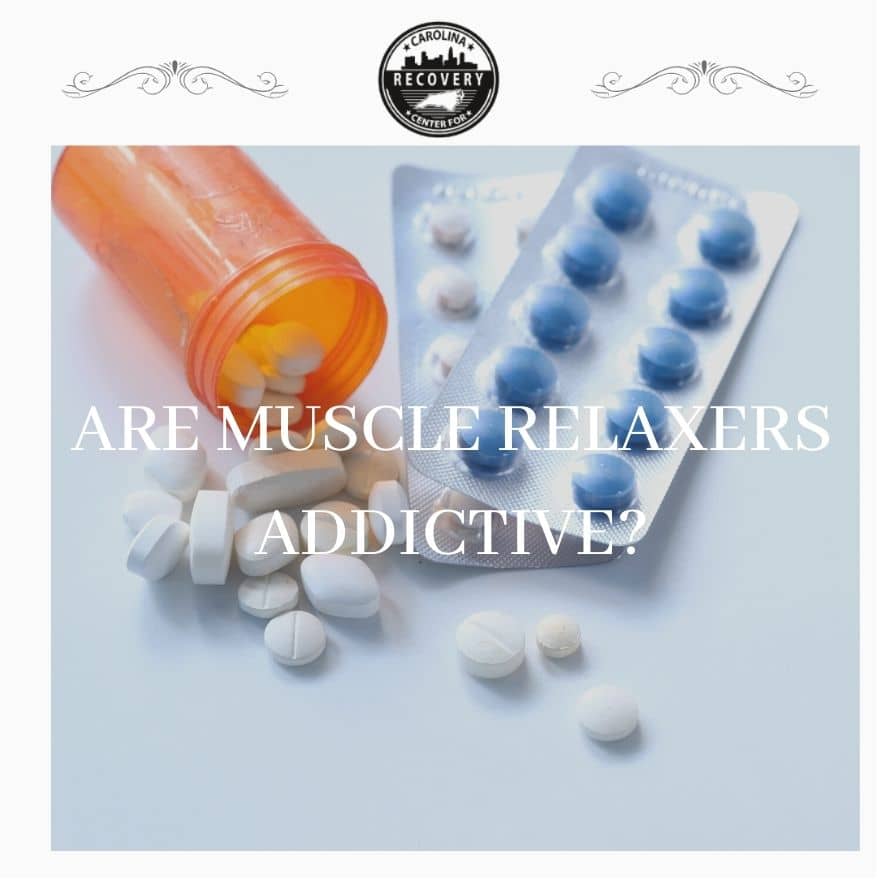When dealing with muscle pain, muscle relaxers are often a go-to form of relief for many. However, there is a growing concern among health professionals that these drugs may be addictive. In this article, we will explore the potential risks associated with the use of muscle relaxers and discuss if they are truly addictive.
Are Muscle Relaxers Addictive?
Muscle relaxers are medications used to relieve pain and discomfort caused by muscle spasms. Although they can help improve your quality of life, some muscle relaxers can be habit-forming and may lead to physical and psychological dependence. It’s important to take them only as prescribed and to talk to your doctor if you’re concerned about addiction.

language
Contents
- What are Muscle Relaxers?
- Are Muscle Relaxers Addictive?
- Related Faq
- What are Muscle Relaxers?
- What are the Side Effects of Muscle Relaxers?
- Are Muscle Relaxers Addictive?
- What are the Signs of Addiction to Muscle Relaxers?
- How can I Avoid Addiction to Muscle Relaxers?
- What Should I Do if I Think I’m Addicted to Muscle Relaxers?
- Do Muscle Relaxers STOP PAIN? How They Work & Answers To Common Concerns
What are Muscle Relaxers?
Muscle relaxers are drugs used to treat muscle spasms and other muscle-related conditions. They work by blocking certain chemicals in the brain that cause muscle tension. Commonly used muscle relaxers include cyclobenzaprine, carisoprodol, and metaxalone. These medications are available in both prescription and non-prescription forms.
How Muscle Relaxers Work
Muscle relaxers work by blocking certain chemicals in the brain that cause muscle tension. These chemicals are called neurotransmitters and they are responsible for telling the body to contract or relax muscles. Muscle relaxers work by blocking these neurotransmitters, which causes the muscles to relax and reduce tension.
Side Effects of Muscle Relaxers
Although muscle relaxers are generally safe and effective, they can cause side effects. The most common side effects include dizziness, drowsiness, nausea, and dry mouth. Other side effects may include headache, blurred vision, constipation, and increased heart rate.
Are Muscle Relaxers Addictive?
In general, muscle relaxers are not considered to be addictive. However, they can be habit-forming if taken for a long period of time or in large doses. People who take muscle relaxers for long periods of time can develop a physical dependence on the drug. This means they need to take higher doses to get the same effect and may experience withdrawal symptoms if they stop taking the drug suddenly.
Risk of Abuse and Addiction
The risk of abuse and addiction is low with muscle relaxers. However, people who take these drugs for a long period of time or in large doses may be at an increased risk. People who have a history of substance abuse or addiction may also be more likely to abuse or become addicted to muscle relaxers.
Treatment for Addiction
If you or someone you know is addicted to muscle relaxers, it is important to seek professional help. Treatment options may include counseling, lifestyle changes, and medications to help with withdrawal symptoms and cravings. With the right treatment, it is possible to recover from an addiction to muscle relaxers.
Related Faq
What are Muscle Relaxers?
Muscle Relaxers are medications used to relieve muscle spasms and stiffness. They work by blocking pain signals from reaching the brain and can also help reduce inflammation. Commonly prescribed muscle relaxers include cyclobenzaprine, carisoprodol, metaxalone, and tizanidine.
What are the Side Effects of Muscle Relaxers?
Common side effects of muscle relaxers include drowsiness, dizziness, upset stomach, blurred vision, dry mouth, and difficulty concentrating. Other, more serious side effects may include depression, confusion, low blood pressure, and difficulty breathing.
Are Muscle Relaxers Addictive?
Some muscle relaxers, such as carisoprodol, have the potential to be addictive if abused. It is important to follow the instructions of your doctor when taking muscle relaxers and to not take more than the recommended dose.
What are the Signs of Addiction to Muscle Relaxers?
Signs of addiction to muscle relaxers may include an increase in the dose needed to achieve the same effect, difficulty stopping use of the drug, cravings for the drug, and changes in mood or behavior when not using the drug.
How can I Avoid Addiction to Muscle Relaxers?
The best way to avoid addiction to muscle relaxers is to follow the instructions of your doctor carefully when taking the medication. Do not take more than the recommended dose and do not mix with alcohol or other drugs.
What Should I Do if I Think I’m Addicted to Muscle Relaxers?
If you think you may be addicted to muscle relaxers, it is important to talk to your doctor as soon as possible. Your doctor can help you find the best way to safely stop taking the drug and can provide you with resources to help you with any withdrawal symptoms you may experience.
Do Muscle Relaxers STOP PAIN? How They Work & Answers To Common Concerns
In conclusion, muscle relaxers can be addictive if used in excessive amounts and/or for prolonged periods of time. While there are many benefits to taking muscle relaxers, it is important to recognize the potential for addiction and use them responsibly. If you have any concerns about potential addiction, talk to your healthcare provider. They can provide you with advice about the best way to use muscle relaxers safely and effectively.
